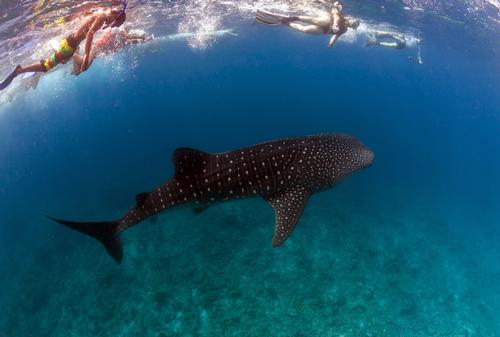22 Aug 2014
Whale shark pod becomes popular eco-tourist attraction in the Maldives
BY Tom Anstey

A pod of whale sharks based in the Maldives is proving to be a hugely popular tourist attraction, with the creatures living in one of the country’s 26 natural atolls – accounting for 3 per cent of all global tourism devoted to sharks.
The whale sharks are certainly an impressive sight. Reaching lengths of at least 40ft (12.2m), the gentle giants feed on shrimp-like plankton and are popular subjects of observation among divers and snorkelers.
In 2013, south Ari atoll, located in the west of the country, attracted 78,000 overseas tourists – just under a tenth of the country’s annual visitor numbers – coming for the specific purpose of whale shark excursions, generating a direct income of MVR142.2m (US$9.3m, €7m, £5.6m) for tour operators.
"There are still many mysteries about these whale sharks - we don't know why they come here or for how long they stay - but bringing the money issue to the table is an important step towards ensuring their conservation," said Fernando Cagua from the Maldives Whale Shark Research Programme (MWSRP), writing in the journal PeerJ.
Cagua also expressed concern, however, at the lack of regulation currently in place over the creatures, with the atoll currently unprotected by a management or regulation plan. Concerns have been raised that without a proper strategy in place, the sharks could become stressed by too much attention and leave the area.
Between 18 and 29 whale sharks are thought to be inhabiting the zone, with fresh talks underway between local communities on the atoll and tourism industry representatives – following the rejection of a management plan in 2009.
"This opens up an incredible wildlife experience to just about everyone, which of course brings with it a degree of risk in terms of the welfare of both the sharks and the tourists," said MWSRP director Richard Rees.
"The encouraging thing is that everyone in the industry we talk to agrees these risks need to be managed and the local communities are receptive to participating in the management of the area," Rees added.
Close Window